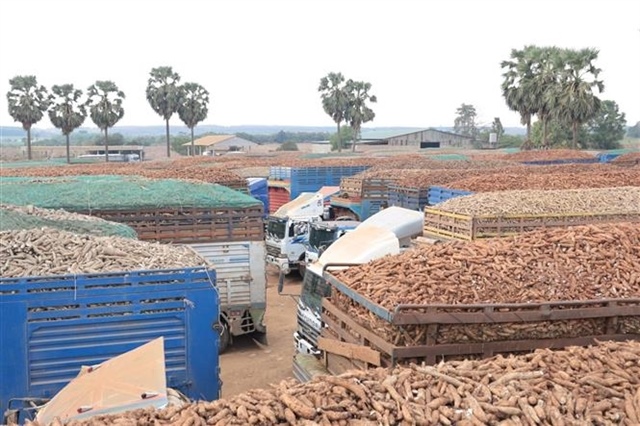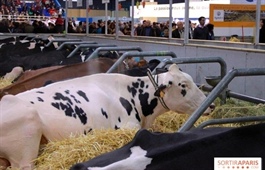Vietnam’s int’l trade plagued by Russia-Ukraine conflict
Vietnam’s int’l trade plagued by Russia-Ukraine conflict
The ongoing military conflict between Russia and Ukraine has negatively affected Vietnam’s export and import activities, prompting relevant ministries and enterprises to come up with suitable response plans.

The country’s exports to Russia have been obstructed due to long transport time and troublesome payment process.
Many imported goods from Russia and Ukraine, namely wheat, corn, and fertilizer, have also showed signs of low supply and surging prices.
In 2021, Vietnam exported about US$550 million worth of agricultural, forestry, and fishery products to Russia, according to the Ministry of Agriculture and Rural Development.
As the conflict broke out last week, many businesses have had to halt their export activities due to transaction risks, a lack of shipping vessels, and high transport costs, and are seeking ways to offload their products or bring them to other markets.
The Vietnam Cashew Association (Vinacas) early this week sent an official dispatch to the Ministry of Agriculture and Rural Development to suggest the revision of cashew export goal in 2022 from $3.8 billion to $3.2 billion, about $400 million lower than last year.
Vinacas cited concerns over global political instabilities, including the Russia-Ukraine conflict, as a reason for its proposal.
The director of a cashew processing and exporting company in Binh Phuoc said that Russian customers have stopped placing new orders, while Vietnamese businesses are also shying away from new contracts due to potential risks.
The shipping process has become more complicated because products cannot be transported directly to Russia, while payment is also challenging after Russia was removed from SWIFT, a secure global messaging network that banks use to make cross-border payments, he explained.
Shipments to Russia now have to go through transit ports in Germany or the Netherlands, and it is also unclear when they will be carried from these ports to Russia, according to Dang Hoang Giang, secretary-general of Vinacas.
The longer transit time, the higher storage cost, Giang added.
With a turnover of $61.8 million, Russia accounted for 1.63 percent of Vietnam's total cashew export revenue in 2021.
“Although Russia is not a key importer, the conflict has caused a domino effect on other markets and will affect the purchase price of raw cashew material in the country,” Giang elaborated.
Bran prices climb
Bran factories in Vietnam have been looking for domestic raw material suppliers since the beginning of March as global prices have jumped wildly.
Russia and Ukraine are the two main exporters of wheat for food and animal feed production worldwide, thus the reduction of exports from these countries has affected the general prices.
Vietnam imports from Russia and Ukraine many input materials for agricultural production including wheat, maize, corn for animal feed production, and fertilizers.
Wheat imports from Russia and Ukraine account for up to 20 percent of the Southeast Asian country’s total import value.
The lack of ships and rising transport costs have forced Vietnamese importers to stop trading with Russia and switch to finding suppliers from other countries such as Australia, South America, and South Africa.
The Russia-Ukraine conflict has also caused global prices of wheat and corn to soar by 10-20 percent and fertilizer by over 20 percent.
The Vietnamese agriculture ministry said it is monitoring the situation and working with industry associations and the State Bank of Vietnam to provide necessary support for local businesses.
The agency is also working with importers of input materials to discuss solutions for price stabilization.
























